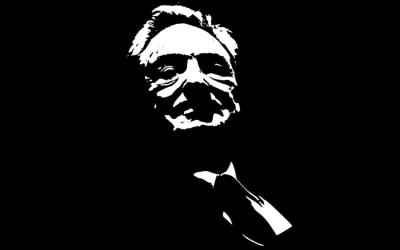Rights and liberties in Russian higher education and the sciences in 2023.
Dmitry Dubrovsky
Photo: The normalization of the daily nightmare in Russia has led the repressive Russian government to exert political and ideological control over higher education and science. Photo by Ricardo Loaiza on Unsplash
The militarization and ideologization of Russia—an integral component of the country’s economic and political shift toward the “military track”—is leading to serious changes in the institutional climate of higher education and science. Attempts to introduce a “new reality” lead to regular violations of academic freedom and the academic rights of students and educators.
Those under threat—not just for their anti-war statements, but also for being part of the LGBT community—are looking for ways to leave the country.
Those who remain are seeking opportunities to maintain their livelihood and forms of “quiet resistance” to ideological and administrative pressure.
At the same time, their conflict with students and teachers who are actively involved in the “search for the internal enemy” and the “fight against Ukraine on the home front” is intensifying.
A Year of Militarizing Education
The militarization of higher education in 2023 was associated not only with the mobilization of students and the increase in the number of military training centers (MTC) in Russian universities.
Practically all higher educational institutions, from those focused on technical disciplines to those in the humanities, are introducing a mandatory course—Basic Military Training. The course includes more than just such practical units as preparation for combat operations, small arms combat, and military tactics. It also contains a special ideological section covering “Russia’s place in a multipolar world.” This marks another step in the ideologization of the instructional process in Russian universities.
At the same time, universities are actively involved in providing humanitarian and technological “assistance to the special military operation.” First and foremost, this means various ideological projects to “support troops,” from writing letters to soldiers on the front lines to knitting camouflage nets, collecting military equipment, and assembling combat drones.
Universities are offering more and more benefits to children of “veterans of the special military operation,” as well as to veterans themselves. Many of those who have returned from war have become either teachers of military disciplines or students with special privileges—for example, receiving a state-funded education in a prestigious field like robotics or programming.
As a rule, those who have gone through combat are on the lookout for “sedition” among the ranks of students and teachers, encouraging others to seek out “traitors and pro-Ukrainians.”
A Year of Ideologization
By “ideologization,” we mean the introduction of courses that directly contradict one of the basic principles of academic freedom—freedom from indoctrination.
There are now three mandatory courses contributing to the ideologization of higher education:
- Foundations of Russian Statehood
- Russian History
- Fundamentals of the Traditional Religions of Russia
These courses are required for students of all disciplines—both in the humanities and in the natural and technical sciences. Judging by their content and key focal points, the courses are meant to become tools for strengthening “patriotism and loyalty” to the aggressor state.
In addition, as noted above, most universities are introducing a course on “basic military training.”
An analysis of the content of these courses, in particular Fundamentals of Russian Statehood, clearly shows not only their focus on justifying military aggression, but also the introduction of a unified view of the “state-civilization,” which is a special form of the “natural unification of peoples around Russian lands,” something that supposedly happened “voluntarily.”
The Ukraine issue occupies a special place in all of these courses. All the official anti-Ukrainian stances, primarily derived from Putin’s article “On the Historical Unity of Russians and Ukrainians,” are reflected in Russian History. In this course, the positions expressed in Putin’s article are listed as the only correct ones, and no criticism or discussion is tolerated.
All these positions have already been included in the core questions on the Unified State Exam as part of school courses in history and social studies. Thus, even gaining entrance to the higher educational system requires learning a set of ideological clichés, which have replaced historical thinking and discussion of complex historical issues.
Fundamentals of the Traditional Religions of Russia is still not being taught, although the plan, by direct order of Putin, had been for the course to be introduced in the first semester of the 2023-2024 academic year. Now, it is anticipated to be taught at a number of universities starting in the second semester. The curriculum is not yet available. However, given the main trends in pedagogy and research within religious studies in Russia, we can say with confidence that it will discuss “traditional values,” especially those associated with traditional religions, their conservative attitudes, and the fight against sects and other religious minorities. And the course will certainly not overlook Russia’s recent “LGBT ban.”
An example of the course layout for Traditional Religions at Critical Points in Russian History, posted on the Open Education portal, shows that the main instructional role will be given to theologians—in other words, the course will be taught not from a secular perspective, but from a theological (and most likely Orthodox) one.
On top of the fact that these courses replace education with ideology, course scheduling limitations mean that they are often offered in lieu of core courses for a particular discipline, thus violating students’ right to receive a quality education within the framework of their chosen area of specialization.
A Year of Ideological Clichés
Humanities and social sciences associated with Ukraine have also failed to evade the grip of ideological control. An analysis of the Russian Science Foundation’s grant policies shows that today, financial aid for fundamental projects studying this region is directly tied to how well the project leaders serve ideological principles. Scientists who do not toe the approved party line are deprived of grant money.
A project on the comparative study of nationalism in Ukraine, in the “DPR” and “LPR,” and in Milosevic-era Serbia, initially supported by the Russian Science Foundation, was closed early because the interim report, according to one of the experts, “contain[ed] rhetoric that differ[ed] from the political assessments given in official documents of the Russian authorities.” In particular, “the Lugansk and Donetsk people’s republics are called ‘people’s republics,’ in quotation marks.”
It is difficult to present research and publications on the modern history, politics, and culture of Ukraine without repeating ideological clichés. Many publications, especially in the fields of political science, history, and law, consist solely of clichés.
A Year of Increased Repressive Measures
This “new normal” could not have been enforced in Russian universities without first having strengthened old mechanisms of repression and created new, intra-university systems of repressive control. Even in the current situation, there are enough people in Russian science and higher education who, in one way or another, resist government intervention and try to protect the professional and ethical standards of Russian science.
The traditional instrument of surveillance and repression for Russian universities is the “vice-rector for security” or “vice-rector for international affairs” (significantly, Putin began his civil service in precisely this position).
More recently, Ethics Commissions have become a convenient tool for repressing oppositional or critically minded teachers and students. They are increasingly involved in сrackdowns on anti-war activists as “violators of academic ethics.”
At the same time, new instruments of disciplinary control are being created that increase supervision over student political activity and offer a “positive alternative” to “destructive political activity.” And so, starting in 2021, many universities introduced the position of vice-rector for youth politics (occasionally “vice-rector for student affairs”). Holders of this position are responsible for monitoring student activity and organizing a “positive curriculum,” from student clubs to what Russian universities call “student self-government.”
But the most repressive of these new instruments are the “…coordination centers for forming an active civilian attitude among the youth, preventing interethnic and interfaith conflicts, countering the ideology of terrorism, and preventing extremism.” These have already been established in at least one university in more than half of the subjects of the Russian Federation. Such centers unofficially collect information about incidents of “non-patriotism” among students and teachers and are effectively “departments for combating extremism among students.”
A Year of Pro-War Vigilantes
These centers are supported in their work by various pro-war vigilantes who seek evidence of “sedition.” Our monitoring of the violation of academic rights and freedoms allows us to conclude that in 2023, the role of these kinds of vigilantes has grown even more important. “Enemies” are hunted down from information obtained through private channels or by speaking to a small group of students. This is what happened to RANEPA teacher Irina Sedelnikova; she was sentenced to 3 years’ probation under the article concerning “fake information about the army.” The source of the problem was her own students, who reported her statements about the war against Ukraine to the leadership.
Accusations of anti-patriotism were used to seize power at the Russian Academy of Sciences’ Institute of Philosophy. One employee whose contract was not renewed compiled a 134-page document containing “evidence” of anti-patriotic statements made by the Institute’s employees, thereby demonstrating their “treason” against the authorities. As a result, the leadership of the academic institution was replaced.
Finally, the escalated fight against undesirable organizations predictably led the prosecutor’s office to the European University at St. Petersburg. The inspection of the university—led by a number of government agencies, including the prosecutor’s office—concluded at the end of 2023 with a fine, which was imposed because they found books published with the support of the Soros Foundation, recognized in Russia as an “undesirable organization,” in a closed section of the library.
* * *
This atmosphere creates opportunities to persecute scientists, teachers, and students who oppose the war. And we are no longer talking just about public statements, but also about private statements that are reported by informants.
The search for spies continues not only among scholars of the humanities, but also in the natural sciences.
At the same time, the pressure on independent researchers in a number of fields has led to a feeling of asphyxiation. Many continue the emigration process that began in 2022.
The normalization of the daily nightmare in the second year of the war has led to the normalization of common practices that violate academic freedom and assert the repressive state’s political and ideological control over higher education and science.





0 Comments